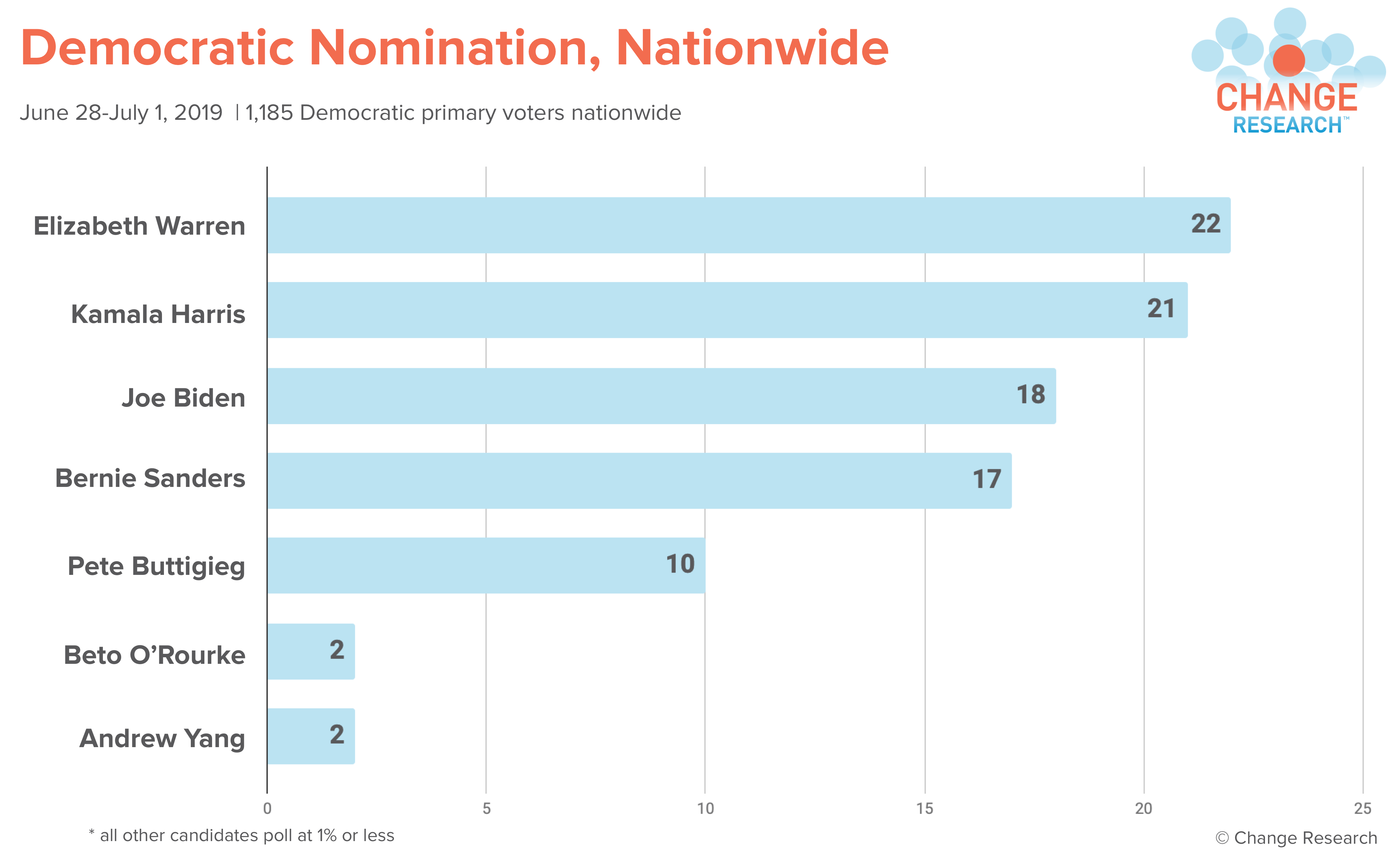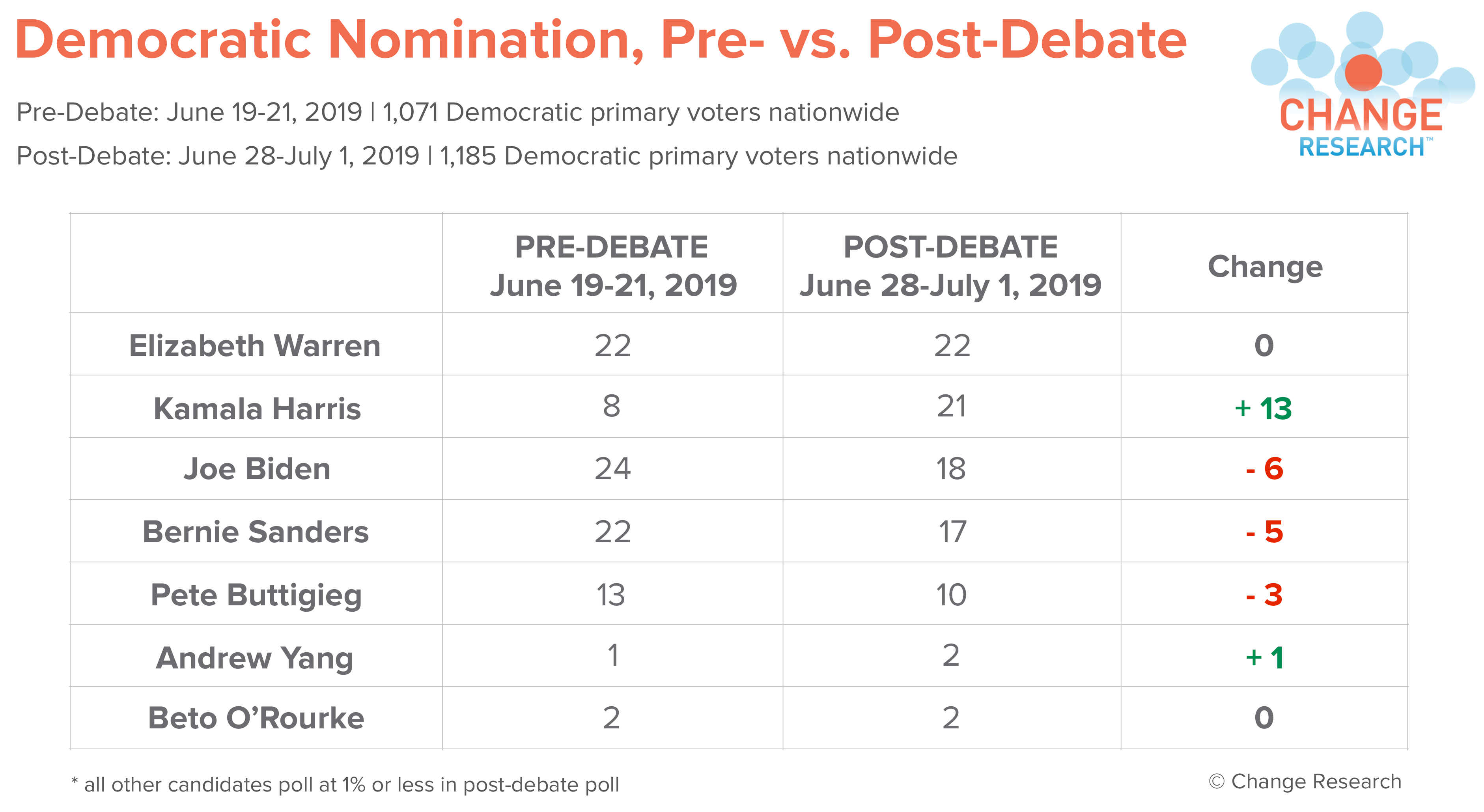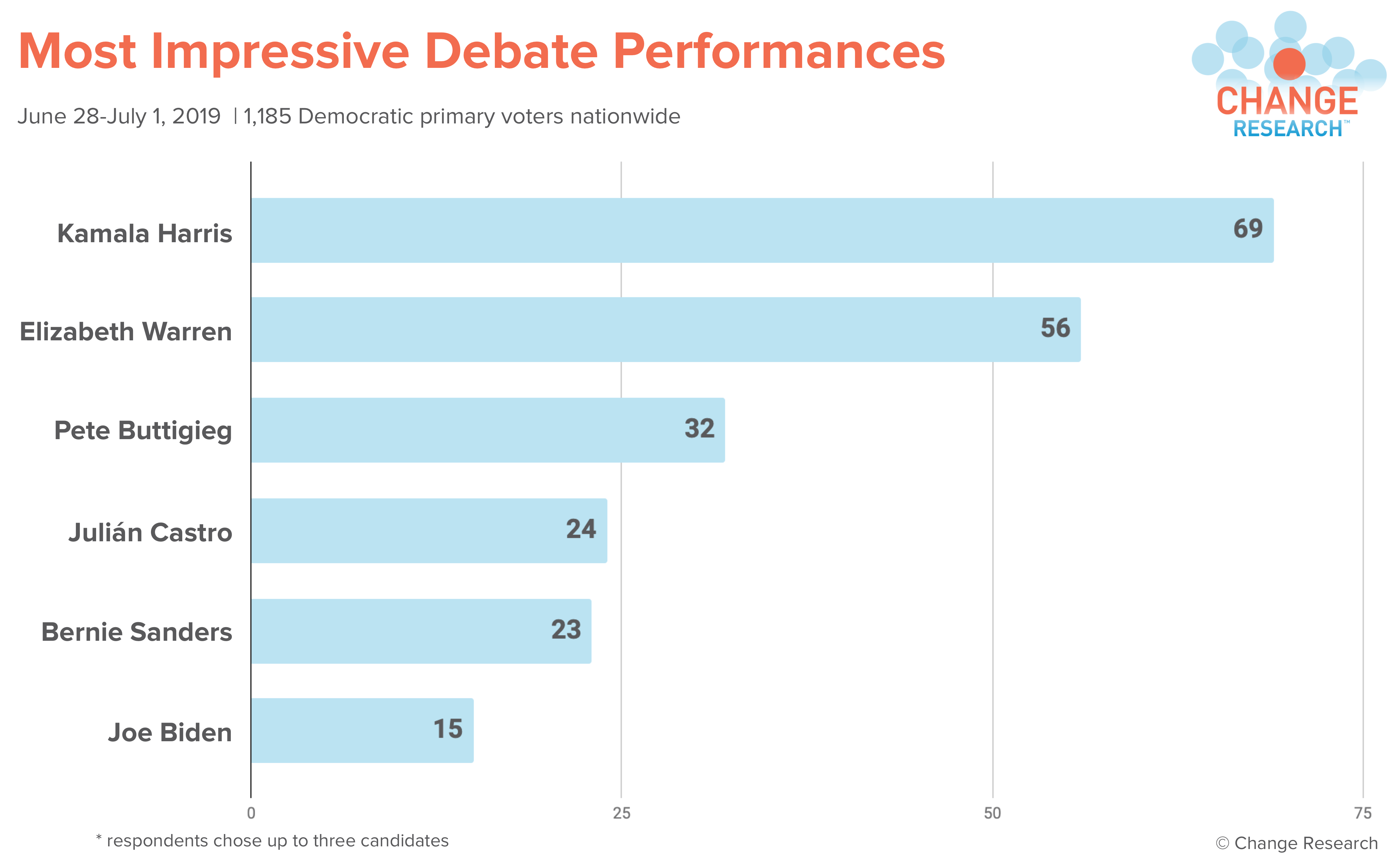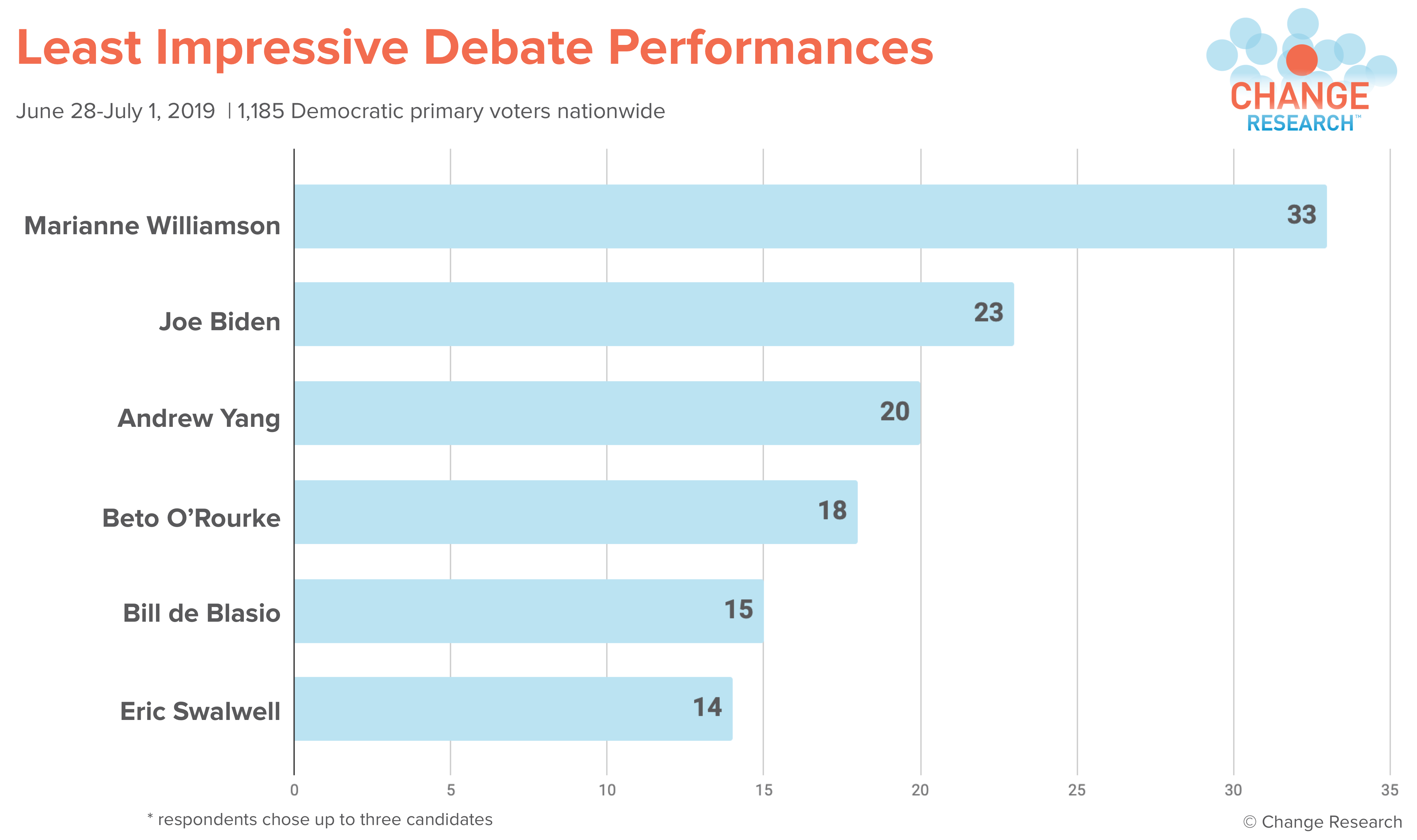Warren, Harris, and Biden Lead Nationwide Following Debates
Change Research Post-Debate Poll: June 28-July 1, 2019
Key Takeaways:
-
Warren (22%), Harris (21%), and Biden (18%) lead the Democratic primary in Change Research’s post-debate poll
-
Democratic primary voters were most impressed by Harris, Warren, and Buttigieg during the debates
-
They were least impressed by Williamson, Biden, and Yang
Look beyond the horse race:
purchase polls from our frequent polling series.
Change Research surveyed 1,185 Democratic primary voters nationwide after the first Democratic primary debates. The survey covered the Democratic horse race, candidates’ debate performances, and several of the issues that candidates discussed during the debates. The poll produced thousands of data points powering actionable insights for campaigns and organizations across the country. This page contains a preview of the survey’s findings – inquire about purchasing the full poll.
Every poll includes:
-
full crosstabs
-
an open-ended question analysis powered by Change Research’s natural language processing technology
-
an executive summary
Warren, Harris, and Biden Lead After First Debates
Elizabeth Warren leads the Democratic nomination among voters nationwide, polling at 22%. The race is close, with the top four candidates within five points of one another; Warren is followed by Kamala Harris (21%), Joe Biden (18%), Bernie Sanders (17%), and, slightly further back, Pete Buttigieg (10%). Beto O’Rourke and Andrew Yang each receive 2% of support, and all other candidates poll at 1% or less.
Want more customization?
Don’t Miss a Poll
Get Results Sent to Your Inbox{{gallery_id=dataItem-jxna2ik9}}
Media Contact
Compared to our pre-debate survey (conducted June 19-21, 2019), Harris’ performance in the horse race changed the most; she gained 13 points after the debate, moving from 8% to 21%. Biden lost 6 points (24% to 18%) and Sanders lost 5 points (22% to 17%).


Limited Poll Info
[TOPLINES] Change Research __ Post-Debat
[TOPLINES] Change Research __ Post-Debat
[TRENDS] Change Research __ Pre- and Pos
Sample and Methodology _ Post-Debate 6_2
Sample and Methodology _ Post-Debate 6_2[TRENDS] Change Research __ Pre- and Pos
Full crosstabs and more available for purchase. Learn more here.
Harris, Warren, and Buttigieg Impressed Debate Watchers Most
Survey respondents were asked to choose up to three candidates who impressed them most in the debates. 69% included Harris in their selections, followed by Warren (56%), Buttigieg (32%), Julián Castro (24%), Sanders (23%), and Biden (15%).

33% of respondents indicated that Marianne Williamson impressed them least in the debates, followed by Biden (23%), Yang (20%), and O’Rourke (18%).

2020 Change
You’ve seen the horse race results in the headlines – now Change Research’s 2020 Change polling series is offering candidates and causes an opportunity to access deeper insights for a strategic advantage.
2020 Change is a series of individual polls and aggregate polling memos offering you maximum flexibility in accessing the data that will be most impactful for your mission.
The polls cover local issues far beyond the Democratic nomination, providing actionable insights for those working on ballot measures, issue advocacy campaigns, down-ballot races, or other legislative initiatives.
You can buy a single poll, a series of polls from a specific state (ex. California polls only), or choose the combination that’s right for you. Purchase a poll or series of polls to gain access to surveys of large samples of Democratic primary voters across demographic groups and areas of the United States.
Learn more about purchasing polls.
Change Research surveyed 1,185 Democratic primary voters nationwide from June 28-July 1, 2019 The survey was conducted online, using Change Research’s Bias Correct Engine. Change Research reaches voters via targeted online ads that point people to an online survey instrument. The Bias Correct Engine dynamically delivers large samples that accurately reflect the demographics of a population. Post-stratification was done on age, gender, ethnicity, and 2016 presidential vote. The margin of error for the full sample, as traditionally calculated, is ± 2.9%.

